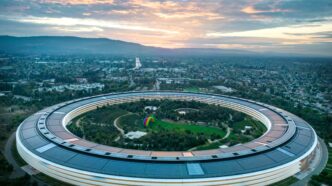In recent years, a powerful group of Silicon Valley billionaires, Elon Musk, Peter Thiel, Marc Andreessen, and Palmer Luckey, have quietly built a network of influence across Washington. Since the start of Donald Trump’s presidency, more than 36 allies, employees, and investors linked to these tech giants have taken up roles in federal agencies. These appointments are not just symbolic—they are shaping U.S. government policy and directing billions of dollars in contracts to companies they have founded, led, or backed.
According to a Wall Street Journal analysis, companies tied to Musk, Thiel, Andreessen, and Luckey have won over a dozen federal contracts worth a total of about $6 billion since January 2017. And the race for more federal deals is far from over.
Critics argue that this growing overlap between public service and private business blurs the lines of ethics. Federal law prohibits employees from using their positions for private gain, yet these high-level appointees are often placed in departments that regulate or fund the very companies they’re connected to.
The scale of this influence is unprecedented. Elon Musk’s circle alone has placed nearly 20 people inside DOGE, a newly created department where federal agencies have been reorganized and workforce numbers slashed. These changes have weakened oversight in key areas like transportation and energy—areas with direct implications for Musk’s ventures like SpaceX and Tesla.
Daniel Weiner, director at the Brennan Center for Justice, points out the lack of oversight: “The second Trump administration is the first in years to impose no extra ethics rules on senior appointees.” With watchdogs removed and guardrails gone, Weiner warns, decisions are increasingly shaped by private interests rather than public good.
Favoritism, Contracts, and a Growing Conflict of Interest
While some argue that insiders from the tech world bring needed innovation to government, the real concern is how their influence may distort competition and policymaking.
Take the Consumer Financial Protection Bureau, which recently walked back plans to regulate data brokers—an industry that benefits several tech and AI companies. Or DOGE’s decision to cut staff investigating Tesla’s self-driving safety, despite ongoing federal probes.
Meanwhile, companies like SpaceX are racking up contracts. In April, the company secured $5.9 billion of a $13.7 billion Pentagon launch deal, despite national security concerns involving foreign investment ties and Musk’s erratic behavior. A SpaceX engineer was even granted an ethics waiver to temporarily work at the Federal Aviation Administration—an agency that could influence the company’s future deals.
Thiel’s Palantir has also scored major wins, securing nearly $1.6 billion in Department of Defense contracts in 2024 alone, on top of $376 million from Health and Human Services since 2020. His former employee, Mike Kratsios, now sets federal tech policy. In speeches, he’s advocated cutting regulations that slow down innovation—especially in AI.
Anduril, Luckey’s defense startup backed by Thiel and Andreessen, is another example. It’s a key player in Trump’s proposed “Golden Dome” missile-defense system and recently took over a $22 billion Army contract with Microsoft. One of its top executives, Michael Obadal, has been nominated for a senior post at the Department of Defense—yet still holds stock in the company.
This dense web of tech executives, investors, and agency appointees creates what experts call a feedback loop—where federal agencies are staffed by people whose success is tied to the companies receiving the contracts.
As Weiner warns, “This concentration of private wealth and political power is dangerous. It shifts policy away from fostering competition and toward protecting a few dominant players from the pressures of a free market.”













